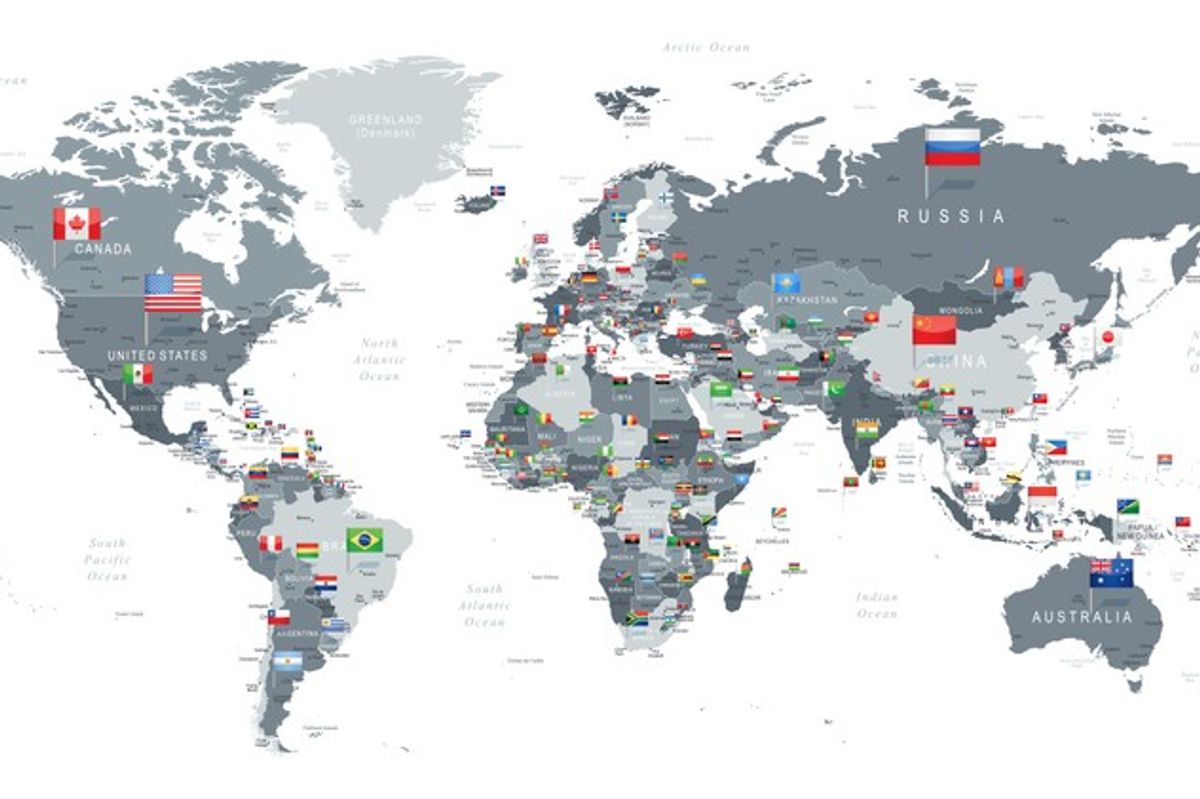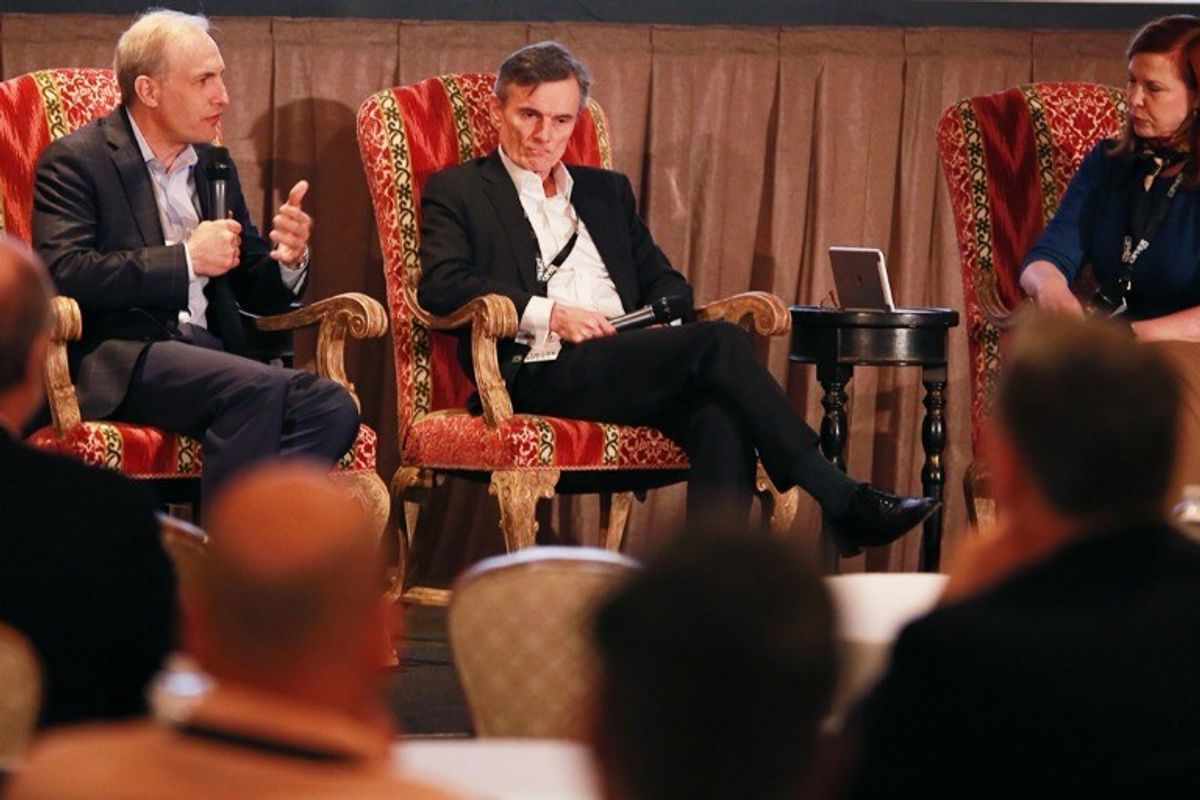The pound rallied and Brexiteers cheered after British Prime Minister Theresa May on Tuesday outlined her plans for a “hard” UK exit from the European Union.
This means the possibility the United Kingdom might stay in the single EU market is officially off the table – although this may not have been possible anyway, given May’s resistance to the free movement of people within the EU and to the European Court of Justice, which handles trade matters among EU members.
It also means the UK will not stay in the bloc’s customs union because, according to May, that prevents London from negotiating its own comprehensive trade deals.
May expressed optimism at the ability to engage in free trade agreements with countries around the world, eliminating the need for membership in the EU market.
“President-elect [Donald] Trump has said Britain [is at the] front of the line,” May said, referring to a Trump interview in The Times.
However, economists and Europe experts that The Cipher Brief talked with were much less bullish.
“Trump has already stated that he is only going to sign trade agreements which are clearly beneficial for the U.S. Trump has also threatened to pull out of the WTO [World Trade Organization] if it is an obstacle for his trade plans. This could reduce the WTO to irrelevance. Britain risks being left out in the cold without any deep trade agreement,” said Sebastian Dullien, an economist and senior policy fellow at the European Council on Foreign Relations.
Although the pound ticked up today, economist Desmond Lachman told The Cipher Brief, “My expectation is that this is going to lead to considerable pound weakness over the next few months as firms, especially in the financial sector, start relocating operations out of the UK and into Europe to maintain access to the single market.”
That’s because trade in services, such as financial services, is more difficult to navigate in new trade agreements than trade in goods. Dullien said getting an agreement in services “is much more complicated, as there are usually issues of regulation and oversight involved.”
“It is relatively unrealistic that Britain will manage to get decent access to EU markets here without accepting to follow ECJ rulings and EU regulation,” he said, referring to the European Court of Justice.
Lachman, a resident fellow at the American Enterprise Institute, said he thought May’s decision to opt for a hard Brexit “will be seen to have been a big mistake for the UK economy.”
Also of note from May’s Tuesday speech is her hard migration stance. She said the UK will “control immigration to Britain from Europe,” while remaining open to international talent.
May said questions surrounding the fate of EU citizens living in the UK and UK citizens living in EU countries are an important priority but gave no indication of what future policy will look like.
Jacob Kirkegaard, a senior fellow at the Peterson Institute for International Economics who used to work in Denmark’s Defense Ministry, told The Cipher Brief this was a missed opportunity for May. She could have announced that the UK would settle the issue of EU citizens in the country, as a “token of good will,” he said, adding that the fact that May did not do so shows how important control over migration is to her.
May did note that the common travel area with the Republic of Ireland, an EU member and not part of the UK, will be important in the coming negotiations.
Other issues she addressed include maintaining coordination with law enforcement and intelligence-sharing and upholding strong security relations overall, noting that Britain is one of only two European powers with nuclear capabilities and saying British armed forces and intelligence operations are crucial to European security.
Another important announcement was on the Brexit process. May discussed a phased approach to prepare for the new arrangements in trade, migration, security, and other matters, saying it is in no one’s interests for there to be a “cliff edge” for business. She also said her government will put a final Brexit deal before both houses of Parliament for a vote.
However, Matthias Matthijs, a professor at The Johns Hopkins School of Advanced International Studies, told The Cipher Brief this move is “meaningless.”
Parliament will essentially have to vote for the Brexit deal because the choice in two years “will not be between the Brexit deal that will have been negotiated and the status quo (i.e. EU membership), but between the Brexit deal and falling out of the EU (the famous ‘cliff edge’).”
“So, as far as I can tell, that is not a real choice,” Matthijs said.
At the end of her speech, May gave a warning, saying, “No deal for Britain is better than a bad deal for Britain,” implying that if there’s no deal, Britain will cut tax rates and essentially make the UK a tax haven, which would likely hurt other EU economies.
This is worrying, Kirkegaard said, and May runs the risk of having overplayed her hand.
Kaitlin Lavinder is a reporter at The Cipher Brief. Follow her on Twitter @KaitLavinder.











